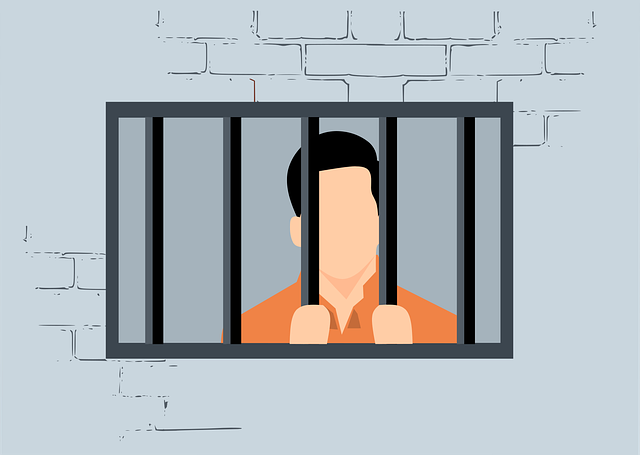How to Clear a Bench Warrant Without Going to Jail

Introduction When a bench warrant is issued for your arrest, it can be a daunting and stressful experience. However, clearing a bench warrant without going to jail is possible. In this blog post, we will discuss the steps you can take to resolve a bench warrant and avoid being arrested.
Understanding Bench Warrants

Warrants A bench warrant is an arrest warrant issued by a judge when an individual fails to appear in court or violates a court order. Unlike other arrest warrants, bench warrants are not issued based on probable cause for a crime but for contempt of court.
Reasons for Bench Warrants

There are several reasons why a bench warrant may be issued, including:
- Failure to appear in court for a scheduled hearing or trial
- Failing to pay fines or fees ordered by the court
- Violating probation or other court orders
Consequences of a Bench Warrant

If a bench warrant is issued, you may face severe consequences, such as:
- Being arrested and taken into custody
- Having to pay additional fines and fees
- Facing additional criminal charges for failing to appear in court
Consulting with a Criminal Defense Attorney

If you have a bench warrant, it is crucial to consult with a criminal defense lawyer as soon as possible. An experienced attorney can help you understand your legal options and develop a strategy to clear the warrant without going to jail.
Related Terms: released pending, court-ordered community service, active warrant, bench warrant means, California’s judicial system, alleged crime, misdemeanor offense, county jail, outstanding warrants
Contacting the Court

One of the first steps in clearing a bench warrant is to contact the court that issued the warrant. Your lawyer can assist you in this process and determine the best course of action based on your specific circumstances.
Requesting a New Court Date
If you miss a court date, resulting in a bench warrant, your attorney can request a new one. This demonstrates to the court that you are willing to cooperate and resolve the issue.
Appearing in Court Once a new court date is scheduled, appearing in court as required is essential. Your lawyer will accompany you to court and present any relevant information or evidence to help clear the warrant.
Explaining Your Situation
During the court appearance, your attorney can explain to the judge why you failed to appear or violated a court order. Valid reasons, such as medical emergencies or unforeseen circumstances, may help persuade the judge to clear the warrant without imposing jail time.
Paying Outstanding Fines and Fees
If your bench warrant was issued due to unpaid fines or fees, your lawyer can work with the court to establish a payment plan or negotiate a reduced amount. By demonstrating a willingness to pay, you may be able to clear the warrant without being arrested.
Completing Court-Ordered
Programs In some cases, the court may require you to complete specific programs, such as community service or rehabilitation, in exchange for clearing the bench warrant. Your attorney can help you understand and fulfill these requirements.
Probation Violations
Suppose your bench warrant was issued due to a probation violation. In that case, your lawyer can work with the court and probation officer to address the violation and develop a plan to get you back on track without going to jail.
Negotiating with the Prosecutor
In certain situations, your attorney may be able to negotiate with the prosecutor to have the bench warrant cleared in exchange for completing specific requirements or entering into a plea bargain.
Conclusion
Clearing a bench warrant without going to jail is possible with the help of a skilled criminal defense attorney. By taking proactive steps, such as contacting the court, requesting a new court date, appearing in court, and fulfilling any requirements, you can resolve the warrant and avoid being arrested. If you have a bench warrant, don’t wait – contact a lawyer today to discuss your legal options.
A criminal background check may be required for specific jobs or housing applications.
If you have any outstanding warrants, it’s best to resolve them immediately.
In some cases, a plea bargain can be negotiated with the prosecutor.
It’s essential to hire a licensed attorney for legal representation.
Court-ordered programs such as anger management or substance abuse treatment may be required.
A warrant may be issued for your arrest if you fail to appear in court.
During a routine traffic stop, the officer may run a record check.
Being released on your recognizance means you don’t have to post bail.
If you receive a warrant, it’s crucial to address it promptly.
The court may increase penalties for repeated offenses.
The judge issues rulings and sentences in legal proceedings.
Understanding the court process is essential for navigating the legal system.
- Law enforcement officers are responsible for maintaining public safety.
- Failure to appear in court can result in additional charges or penalties.
- Many attorneys offer a free consultation to discuss your case.
- Being arrested can have serious consequences, both legal and personal.
- Traffic laws govern the operation of motor vehicles on public roads.
- You’ll need to provide a valid reason for missing a court date.
- Hiring an experienced attorney can improve the outcome of your case.
- If you fail to appear in court, you may face additional charges.
- Once arrested, you’ll be booked and processed by law enforcement.
- The judge has the authority to set bail amounts and issue sentences.
- During a traffic stop, remain calm and comply with the officer’s instructions.
- Probation is designed to ensure compliance with court-ordered conditions.
- Police officers have the authority to make arrests and issue citations.
- Depending on the offense, you may face jail time or other penalties.
- Bail is a financial guarantee that you’ll appear in court as required.
- Different types of crimes carry varying degrees of punishment.
- Consulting with a skilled lawyer can protect your rights and interests.
- A background check may be required for employment or housing purposes.
- Warrants are issued directly by a judge or magistrate.
- After an arrest, you may be held in custody until arraignment or release.
- Legal professionals often post blogs to share information and updates.
- You may need to pay court fees, fines, or restitution as part of your sentence.
- Sometimes, you may be ordered to pay a fine as punishment for an offense.
- If your case goes to trial, an attorney can represent you.
Related Terms: bench warrant issued, bench warrant removed, outstanding warrant, police officer, active outstanding warrant, arrest warrant removed, police custody, California judicial system, blog posted, own recognizance, criminal background checks, court increasing,













